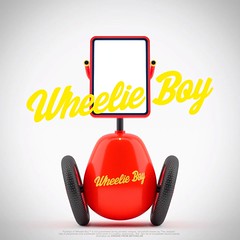 I hope, in order to understand what follows, you don’t need to have read William Gibson’s “The Peripheral” or watched the streaming TV adaptation on Amazon Prime.
I hope, in order to understand what follows, you don’t need to have read William Gibson’s “The Peripheral” or watched the streaming TV adaptation on Amazon Prime.
I read the novel nine years ago, when it was first published. Loved it, wrote a review on Goodreads, posted same here on the blog. My book club selected it as a monthly read a few years later; thinking it was still fresh in my memory I didn’t bother to re-read it, but took part in the group discussion. Earlier this year, I watched the television version, which came out in weekly installments. Because it’s a complicated science fiction story with lots of head-spinning ideas, I thought it would be worth a second watch and reading, which I’m doing now.
As noted, when the TV version first aired, viewers had to wait a week between installments. Now that all eight episodes are out there, you can binge it over the course of a night or two, or, as I did the second time around, take eight days and watch one episode each night. Without the weekly gaps, I found the story easier to follow, and picked up on details and connections that had gone over my head the first time around.
So that was great, but then I started re-reading the book (I’m currently halfway through), and — wow — it’s like I’m reading it for the first time. And it’s amazingly good, even better than I remembered.
But it’s memory I want to talk about. Maybe not yours, but mine for sure. Because in my memory, the book differed from the TV adaptation in one key way, and I wondered why the book’s author was so publicly enthusiastic about the TV version, the producers having taken such a major liberty with his story.
I don’t want to get into plot details and spoilers, but the major liberty I saw was the peripheral itself. My recollection of the book was that people living in a more distant future used a child’s toy to communicate with people living in a nearer future, one just slightly ahead of ours. The toy was a robotic truck with a computer chip, wifi, miniature monitor screen, camera, and microphone, which folks from the farther future were able to control. The toy, I thought, was the peripheral of the title. In the TV adaptation, the peripheral is something else entirely, and there is no toy truck (in a few early scenes, there’s a Roomba-type thing scurrying around the floor of Flynn and Burton’s house, and I thought “aha, there’s the peripheral,” but I was mistaken — it’s just a Roomba).
Then, a few days ago, I started re-reading the novel, and damn if my memory hasn’t betrayed me. The TV adaptation, it turns out, is very faithful to Gibson’s novel. Of course there are differences — for one, the Wilf Netherton of the novel is a drunk while his TV counterpart isn’t — but overall the show follows the novel in every important respect, including the key point I’d misremembered. There is no toy truck. The peripheral of the TV adaptation is the peripheral of Gibson’s novel.
So where did that toy truck come from, and why do I have such detailed memories of it? I think it must come from a earlier Gibson novel or short story, a foreshadowing of the story he later developed in “The Peripheral,” although so far I haven’t been able to track it down. Maybe it was another author’s idea, not Gibson’s (I read a lot of science fiction, so that’s entirely possible). The one possibility I don’t want to examine too closely is that I made the whole toy truck thing up, because if that’s true I’ve got bigger memory problems than I want to admit.
 Update (4/29/23): Turns out I could’ve saved myself a post, not to mention a whole morning questioning whether I’m still of sound mind, if I’d finished re-reading “The Peripheral” before spouting off.
Update (4/29/23): Turns out I could’ve saved myself a post, not to mention a whole morning questioning whether I’m still of sound mind, if I’d finished re-reading “The Peripheral” before spouting off.
Yes, there is a child’s toy in the book, used by someone from the more distant future to visit someone in the nearer future, and more importantly it is identified as a peripheral. It isn’t a toy truck, though, it’s a Wheelie Boy™, not yet invented in our time, but I found a graphic someone made of it. Wilf Netherton, in 2100 London, is able to electronically inhabit the Wheelie Boy in the 2030s and look around while having a chat with Flynn at her house in North Carolina. Now I’m well into spoiler territory and will stop, save to express relief that my mind is in better shape than I thought yesterday. I should probably delete this entire post, but what the hell, I’ll leave it up. No one reads this shit anyway, right?
I don’t know how you all feel about re-watching things on TV, but we do a lot of it. Justified and Veronica Mars for the both of us; more recently For All Mankind, and we’ve talked about giving The Sopranos another run. For myself, Buffy the Vampire Slayer and The Expanse, and I may take a second look at Better Call Saul after I finish my first watch of the final season, which just became available on Netflix. Probably Breaking Bad as well.
Nah, we’re still here and still reading, just probably not that many of us out here with a Seiko wristwatch fetish. Though I love my $20 Casio with 10-year battery. Watches were more important for the older generations, especially the financially stricken ‘Greatest Generation’.
When my WWII Navy vet father was dying in hospice with no chance of ever rising from his deathbed he still wanted his eyeglasses, hearing aids and watch next to him.
And geez, Greatest Generation, what an impossible and pretentious moniker- greater than the Founding Father’s (and mother’s) generation? Greater than the Civil War generation?
They were for sure the greatest drunks and fornicators of any generation and that’s a fact, my parent’s tranche.
The supposed leading WWII marine ace Gregory ‘Pappy’ Boyington was the poster boy for staying drunk at all times except when hungover in actual combat; and for fucking any willing female he could grab on land, sea and air.
The ocean liner orgies onboard his ship on the way back to the states after his AVG ‘Flying Tigers’ stint are legendary to this day.
Maybe it was pent up demand following the Great Depression and the inhibited 1930s, and prohibition, but if you read about the era it seems every soldier, sailor, airman and marine, almost without exception, got laid at every opportunity. ‘Please baby, I’m shipping out and could be dead soon’.
And the women were also down for the program, ‘if Floyd don’t make it back from Okinawa at least I’ll have Jr to remember him by and carry on his name’. Hence the Baby Boom.
And they pounded down the hooch every chance they got because, hey, I could be dead tomorrow- down the hatch.
You are quite right to doubt your memory, I’ve argued with my brothers over points of fact I was quite sure of only to find my memory was faulty. After all, it is the job of our brains and minds to come up with post hoc rational reasons to account for the programmed instant irrational decisions we always make, in lieu of actual thinking.
Memories are fragile, fleeting and never objective or agreed upon (Rashomon) and our brains happily supply false memories when needed to keep us copesitic.
Just finished reading Power At Sea: 1946-2006, A Violent Peace. It seems your dirty little sexist squadron ditties were pretty small potatoes compared to the Navy’s ‘tail hook’ scandal. Drunken squid pilots in hotel hallways making any women who happened to be there run a gauntlet of leering, cat-calling and groping. Sexual assault in other words. I can just imagine how the women who complained about it were treated, ‘now, now little lady’, he mansplained.
Well, soldiers are not saints and in time of war we need merciless efficient young patriotic killers like ‘Pappy’* and ‘Chuck’ Yeager (2nd pilot to break the ‘sound barrier’), willing, eager and able to blast our national enemy from the six o’clock position on land, sea or air. Were any war vets ever canonized by the catholic church? I doubt it.
*Difficult to believe ‘Pappy’ was credited with so many questionable air-to-air kills, including all his AVG victories. The US Marine Corps, always masters of propaganda. ‘She was good to us marines but she was rotten to the corps (core?)’- works better orally. The marines I met in training at Ft Sill called it ‘the crotch’.
Fine young men, literally give you the shirt off their back, I’m sure they fought bravely and died well. All convinced that by being in an elite fighting outfit no harm could come to them. Yes, dumber even than my US Army cannon-cockers, which is saying a lot. Bless ’em all, all dead by now or decrepit elderly like me.
Tod recently posted…Old Town Canoe DIY Thwart and Sail Ideas
USAF fighter pilots no different from USN counterparts in the drunken leering, cat-calling and groping of women department (even fellow fighter pilots who happen to be women). Alcohol+young men full of themselves=sexual assault verging on rape if not rape itself. Why I never believed the Duke lacrosse team’s denial of assault and rape charges, and never will.
Please, gentlemen. “The Greatest Generation” was Tom Brokaw’s ego sliming us all. Met him once. His parents really fouled up: should’ve named him DICK.